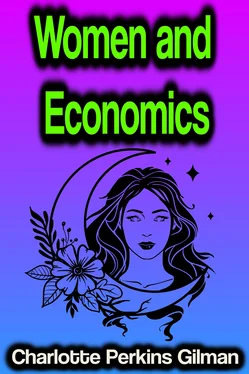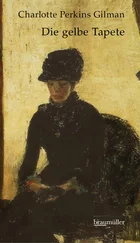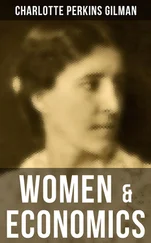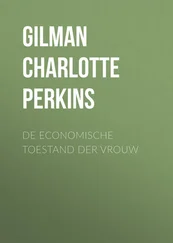To the young man confronting life the world lies wide. Such powers as he has he may use, must use. If he chooses wrong at first, he may choose again, and yet again. Not effective or successful in one channel, he may do better in another. The growing, varied needs of all mankind call on him for the varied service in which he finds his growth. What he wants to be, he may strive to be. What he wants to get, he may strive to get. Wealth, power, social distinction, fame,–what he wants he can try for.
To the young woman confronting life there is the same world beyond, there are the same human energies and human desires and ambition within. But all that she may wish to have, all that she may wish to do, must come through a single channel and a single choice. Wealth, power, social distinction, fame,–not only these, but home and happiness, reputation, ease and pleasure, her bread and butter,–all must come to her through a small gold ring. This is a heavy pressure. It has accumulated behind her through heredity, and continued about her through environment. It has been subtly trained into her through education, till she herself has come to think it a right condition, and pours its influence upon her daughter with increasing impetus. Is it any wonder that women are over-sexed? But for the constant inheritance from the more human male, we should have been queen bees, indeed, long before this. But the daughter of the soldier and the sailor, of the artist, the inventor, the great merchant, has inherited in body and brain her share of his development in each generation, and so stayed somewhat human for all her femininity.
All morbid conditions tend to extinction. One check has always existed to our inordinate sex-development,–nature's ready relief, death. Carried to its furthest excess, the individual has died, the family has become extinct, the nation itself has perished, like Sodom and Gomorrah. Where one function is carried to unnatural excess, others are weakened, and the organism perishes. We are familiar with this in individual cases,–at least, the physician is. We can see it somewhat in the history of nations. From younger races, nearer savagery, nearer the healthful equality of pre-human creatures, has come each new start in history. Persia was older than Greece, and its highly differentiated sexuality has produced the inevitable result of enfeebling the racial qualities. The Greek commander stripped the rich robes and jewels from his Persian captives, and showed their unmanly feebleness to his men. "You have such bodies as these to fight for such plunder as this," he said. In the country, among peasant classes, there is much less sex-distinction than in cities, where wealth enables the women to live in absolute idleness; and even the men manifest the same characteristics. It is from the country and the lower classes that the fresh blood pours into the cities, to be weakened in its turn by the influence of this unnatural distinction until there is none left to replenish the nation.
The inevitable trend of human life is toward higher civilization; but, while that civilization is confined to one sex, it inevitably exaggerates sex-distinction, until the increasing evil of this condition is stronger than all the good of the civilization attained, and the nation falls. Civilization, be it understood, does not consist in the acquisition of luxuries. Social development is an organic development. A civilized State is one in which the citizens live in organic industrial relation. The more full, free, subtle, and easy that relation; the more perfect the differentiation of labor and exchange of product, with their correlative institutions,–the more perfect is that civilization. To eat, drink, sleep, and keep warm,–these are common to all animals, whether the animal couches in a bed of leaves or one of eiderdown, sleeps in the sun to avoid the wind or builds a furnace-heated house, lies in wait for game or orders a dinner at a hotel. These are but individual animal processes. Whether one lays an egg or a million eggs, whether one bears a cub, a kitten, or a baby, whether one broods its chickens, guards its litter, or tends a nursery full of children, these are but individual animal processes. But to serve each other more and more widely; to live only by such service; to develope special functions, so that we depend for our living on society's return for services that can be of no direct use to ourselves,–this is civilization, our human glory and race-distinction.
All this human progress has been accomplished by men. Women have been left behind, outside, below, having no social relation whatever, merely the sex-relation, whereby they lived. Let us bear in mind that all the tender ties of family are ties of blood, of sex-relationship. A friend, a comrade, a partner,–this is a human relative. Father, mother, son, daughter, sister, brother, husband, wife,–these are sex-relatives. Blood is thicker than water, we say. True. But ties of blood are not those that ring the world with the succeeding waves of progressive religion, art, science, commerce, education, all that makes us human. Man is the human creature. Woman has been checked, starved, aborted in human growth; and the swelling forces of race-development have been driven back in each generation to work in her through sex-functions alone.
This is the way in which the sexuo-economic relation has operated in our species, checking race-development in half of us, and stimulating sex-development in both.
Конец ознакомительного фрагмента.
Текст предоставлен ООО «ЛитРес».
Прочитайте эту книгу целиком, купив полную легальную версию на ЛитРес.
Безопасно оплатить книгу можно банковской картой Visa, MasterCard, Maestro, со счета мобильного телефона, с платежного терминала, в салоне МТС или Связной, через PayPal, WebMoney, Яндекс.Деньги, QIWI Кошелек, бонусными картами или другим удобным Вам способом.












